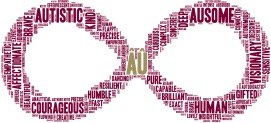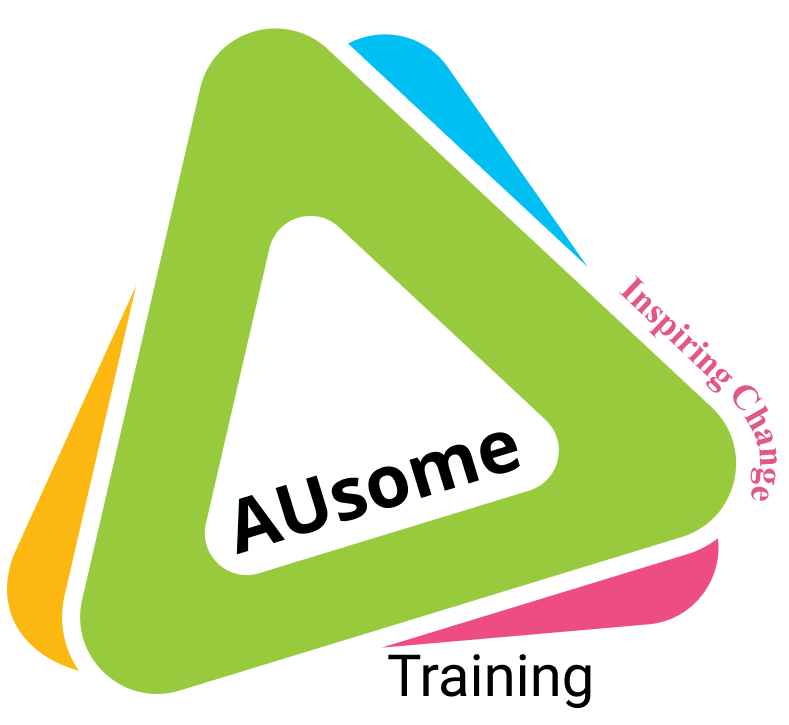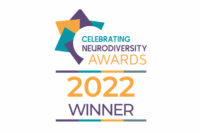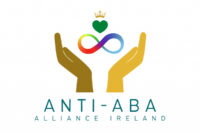What is Neurodiversity? Over the coming weeks I’ll be doing a series of blogs for AUsome Training looking at words and terms that keep turning up in discussions around Autistic affairs. I’ll explain their origins, explain what they mean, and show how you can use them. So, to start us off, what is neurodiversity?
The story starts in the mid-1990s, when the foundations of the Autistic community were still being built. Those pioneers quickly realised they had no word for the people who described themselves as normal. Certainly ‘normal’ wouldn’t do as that frames Autistics and others as abnormal.
Playing around with words produced one that stuck: neurotypical. Other ‘neuro-‘ terms quickly followed, notably neurodiversity and neurodivergent. Over the following 25 years others have been generated, though few have become popular – neuroqueer, neurokinder, neuromajority and neurominority, neurokin, neurodull, neurofizz, neurokids and so on.
Of these ‘neurodiversity’ gained especially widespread use – and misunderstanding – since being used in a thesis by Judy Singer in 1998 and in The Atlantic magazine.
How was Neurodiversity created ?
Neurodiversity was created by fusing the ‘neuro-‘ word element found in neurology and neuroscience with ‘diversity’ as found in terms like biodiversity. Biodiversity describes how nature needs a complex mix of interacting life forms to remain healthy and balanced.
The idea behind ‘neurodiversity’ was similar: All humans vary and each neurological type has a role to play in a functioning, healthy human society. Some bring analytical skills, others leadership, some are carers or builders or artists or teachers; some present questions, others discover answers, some help maintain basic order while others bring needed change. It makes a lot of sense, really.

At its heart, neurodiversity describes the reality of human society. It says acknowledging and respecting a mix of skills and perspectives keeps society healthy. It challenges claims that one type of person is supreme and that others do not deserve full human rights. It shows that ‘normal’ is meaningless if you recognise and value the inherent dignity, worth, and rights of every human individual. And it works both ways – we are all ‘other’ to someone. Neurodiversity not only says ‘treat others as equals’ it calls on others to treat you as an equal too. We can say “society is made fairer and richer thanks to neurodiversity.” We can also say “increasing the neurodiversity of our team allowed us think outside the box and innovate.”
What does neurodivergent mean?
So why do people sometimes treat neurodiversity almost like a curse word? Well, it challenges certain assumptions about human worth and the order of society and that can be a bit scary. It is easy to slip unawares into that line of thinking because our societies tend to value conformity, and new ideas can feel like a threat even if they say something quite compassionate or inclusive.
There are other words that tend to get muddled up in this too, especially ‘neurodiverse’ and ‘neurodivergent’ so I’ll say a little about them.
‘Neurodiverse’ gets misused a lot. Neurodiverse describes a group of people, not a single person. So, we could describe a workplace as neurodiverse because the staff have a mix of neurological types. Saying “Jodie is a neurodiverse person” isn’t really a meaningful sentence.
Instead we can describe Jodie as ‘neurodivergent.’ It means the person’s neurology diverges from the typical. So, you can read ‘neurodivergent’ as the opposite to ’neurotypical.’ So, we can say “Jodie is a neurodivergent person” or “Autistics are a community of neurodivergent people.” That’s a lot of neuro- words to take in and remember, so I’ve included a simple reference below.
A summary of terms
Neurodiversity
A description of human society that recognises the worth of the diversity of neurologies to the health and development of the whole.
“It is good to recognise the value neurodiversity brings to our community.”
Neurotypical
A person whose neurology matches closely to that of the majority of humans in a society.
“Most humans are neurotypical and so tend to see things in a similar way.”
Neurodivergent
A person whose neurology diverges from the typical in a society, e.g. Autistic, ADHD, ABI, or with Trisomy 21, dyspraxia, Tourettes, dyslexia, dyscalculia, and many, many more.
“Jodie is neurodivergent and their insights helped us reimagine how our products can reach new markets.”
Neurodiverse
A description of a group of people with a mix of neurological types.
“I love my new job because the workforce is neurodiverse, making it an interesting and creative environment.”
Learn more about Neurodiversity
Maqqi (Stiof MacAmhalghaidh)


